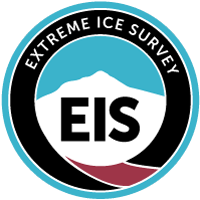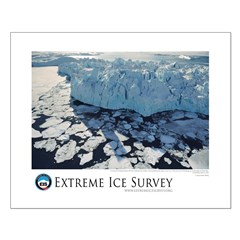Glossary of Glacier Terminology
An excellent, comprehensive glossary of terms related to glaciers can be found at the National Snow and Ice Data Center website.
Cuffey, K.M. and Paterson, W.S.B. The Physics of Glaciers. Burlington (MA): Elsevier, 2010.
Global Climate Change Impacts in the United States, Sue Hassol
Trends and Implications of Climate Change for National and International Security, U.S. Department of Defense, Defense Science Board, October 2011
Meltfactor.org – Dr. Jason Box blog
NCAR – National Center for Atmospheric Research
NSIDC – National Snow & Ice Data Center
RESOURCES FOR TEACHERS
Grades K–2 A Vacation to the Polar Regions Students will learn about the characteristics of the Arctic and Antarctic by looking at a globe and at pictures of the polar landscape and animals. They will plan a vacation to one of these regions and draw pictures or write stories depicting themselves on the trip. http://www.nationalgeographic.com/xpeditions/lessons/05/gk2/polar.html
Grades 3–5 Expedition to the Poles Students will pretend they have just returned from a year in the Arctic or Antarctic. They will look at websites about these regions and expeditions to them, and they will create posters illustrating their experiences. Students will conclude by writing paragraphs explaining what it would be like to visit the polar region that they did not focus on in this lesson. http://www.nationalgeographic.com/xpeditions/lessons/05/g35/expedition.html
Grades 3–5 What’s Happening to the Emperor Penguins? Students will learn about emperor penguins’ habitat and behaviors through websites such as National Geographic Creature Feature: Emperor Penguins and will illustrate a map to show what they have learned. They will view pictures of icebergs that are affecting penguin colonies and consider what impacts these icebergs might have on the penguins. They will conclude by writing paragraphs describing the maps that they have illustrated. http://www.nationalgeographic.com/xpeditions/lessons/18/g35/seaspenguin.html
Grades 3–5 Antarctica: A Cold Desert Ecosystem In this lesson students will construct a rough map of Antarctic ecosystems and explore relationships among the creatures that populate them. [Note: This lesson can be adapted to focus on other regions, including the one in which you live.] http://www.nationalgeographic.com/xpeditions/lessons/08/g35/antarctica.html
Grades 6–8 What Do People Know about the Arctic and the Antarctic? In this lesson, students will research the landscapes, climates, and animal life of the polar regions and learn the differences between the Arctic and the Antarctic. http://www.nationalgeographic.com/xpeditions/lessons/05/g68/knowabout.html
Grades 6–8 To the Ends of the Earth: Research in Polar Seas In this lesson students will learn about famous explorers of the polar regions and have a simulated polar exploration of their own. http://www.nationalgeographic.com/xpeditions/lessons/01/g68/earth.html
Grades 6–8 Icebergs and Penguins Students will read the National Geographic News article “Ice Buildup Hampers Penguin Breeding in Antarctica” to learn about the problems caused by these icebergs. They will see photographs of icebergs moving over time and write brief papers pretending to be scientists reporting on the status of emperor penguin populations. http://www.nationalgeographic.com/xpeditions/lessons/18/g68/seaspenguin.html
Grades 9–12 Environmental Issues in the Polar Regions Students will learn about how environmental problems affect the polar regions, and they will create magazine ads to educate the public about these problems and to convince people to pay more attention to human impacts on the Arctic and Antarctic. http://www.nationalgeographic.com/xpeditions/lessons/05/g912/polarregions.html
Grades 9–12 Climate and CO2: Analyzing Their Relationship In this lesson, students will speculate on various scenarios of future world climates if the greenhouse effect increases. http://www.nationalgeographic.com/xpeditions/lessons/07/g912/co2.html






